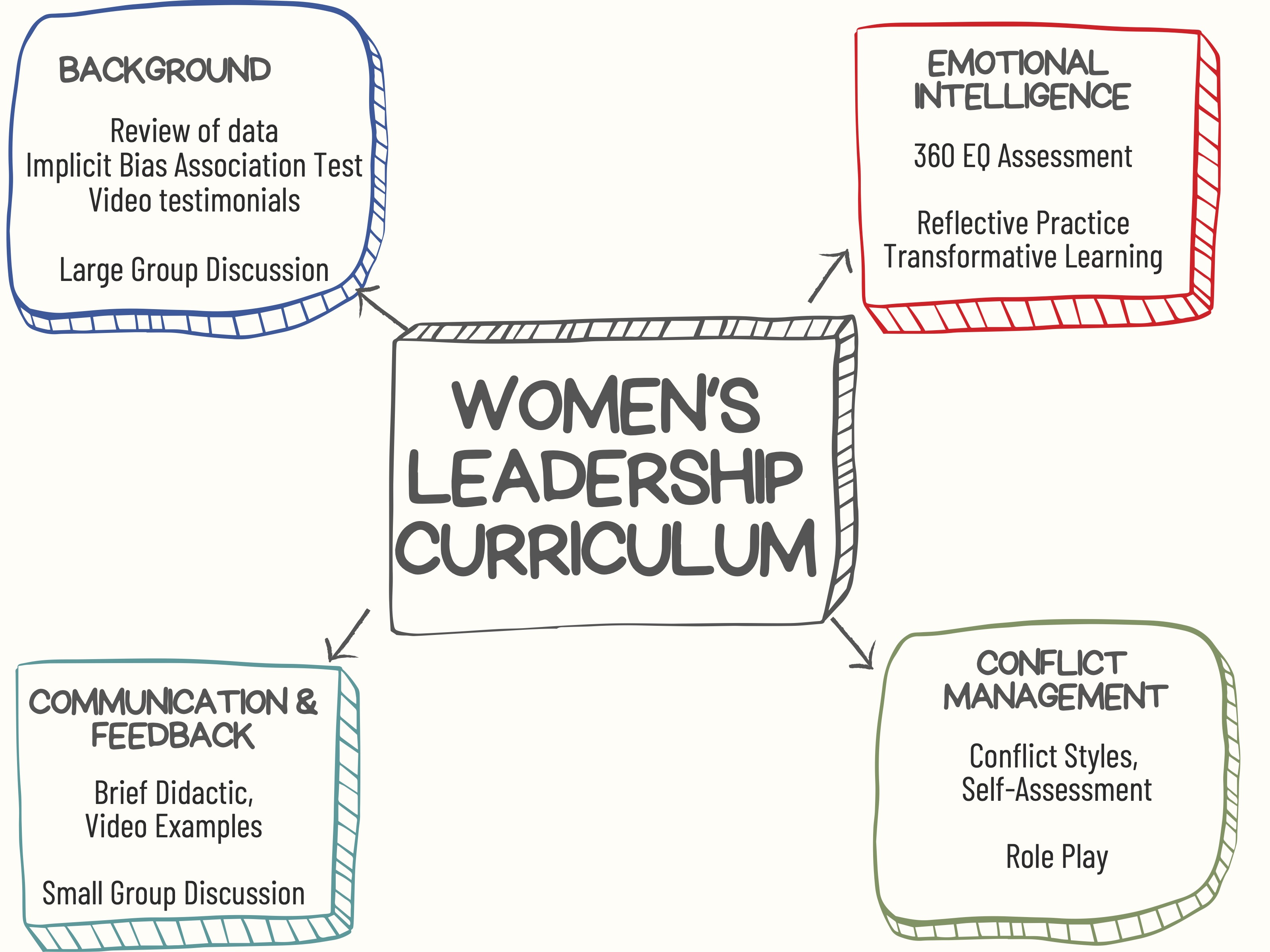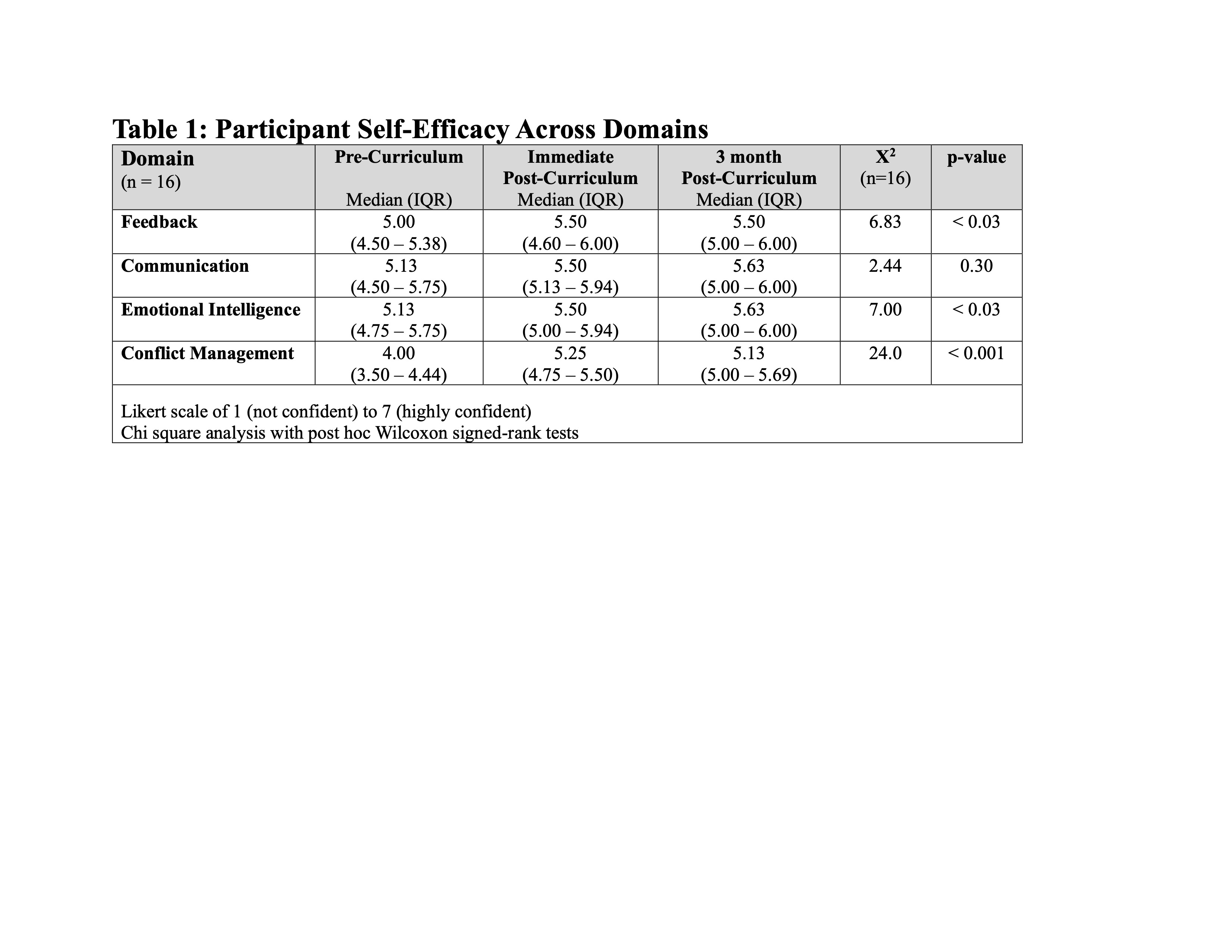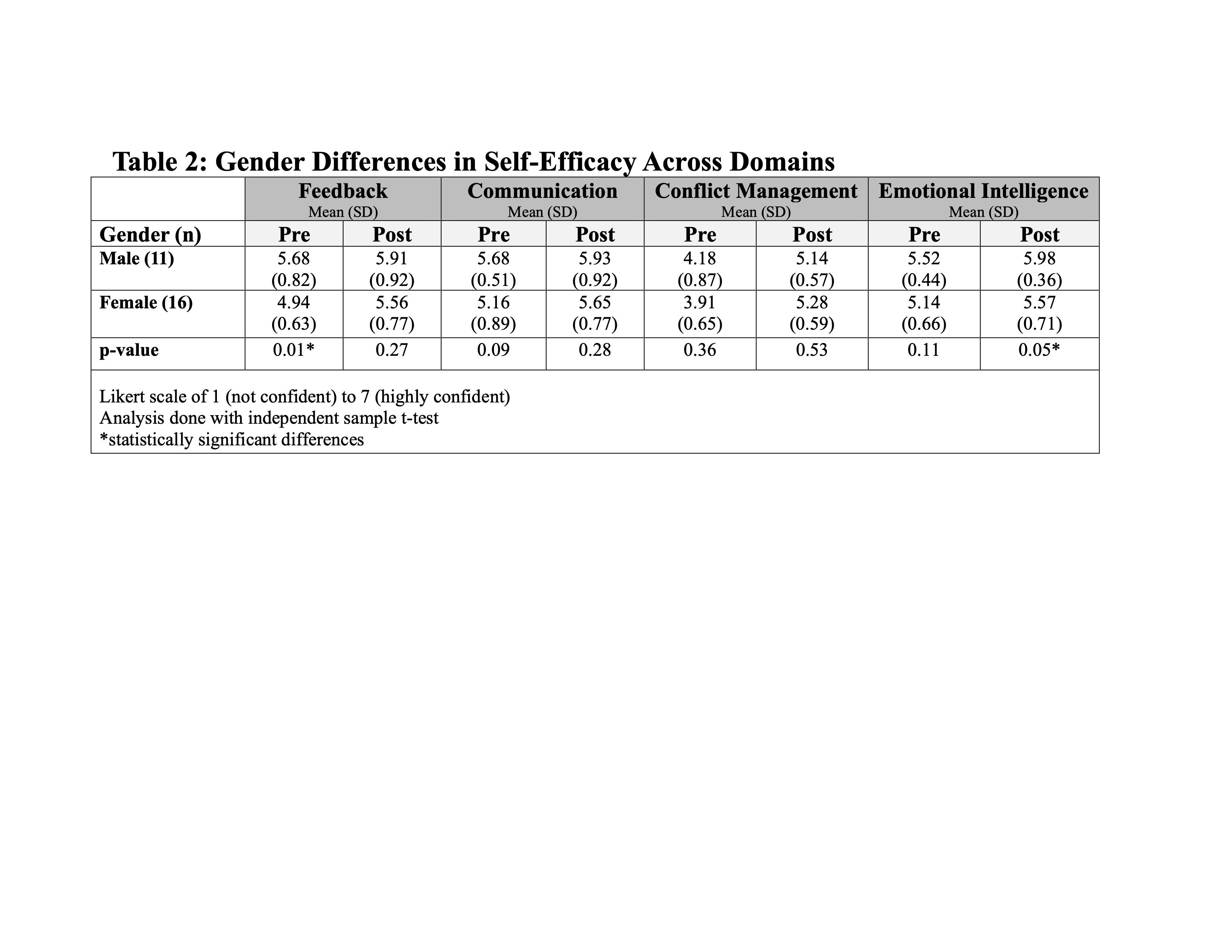Medical Education
Session: Medical Education 1
516 - Development and Implementation of a Pilot Women's Leadership Curriculum for Pediatric Trainees
Friday, May 3, 2024
5:15 PM - 7:15 PM ET
Poster Number: 516
Publication Number: 516.44
Publication Number: 516.44

Meredith Mitchell, MD (she/her/hers)
Pediatric Hospital Medicine Fellow
Children's Hospital of Richmond at VCU Health
Richmond, Virginia, United States
Presenting Author(s)
Background: Despite rising numbers of women in medicine, there remains a significant chasm between women and men amongst leadership positions. Self-efficacy theory posits that, for individuals to maximize their potential, they must possess both the competence and the belief they are capable. While achieving gender equity in higher leadership may require more “top-down” changes, a gender-specific leadership curriculum for female residents could contribute to their early career growth through acquisition of competency and promotion of self-efficacy.
Objective: To develop a novel leadership curriculum for female pediatric residents to improve leadership self-efficacy.
Design/Methods: We designed a curriculum using Kern’s six-step approach to curriculum development and self-efficacy theory. The problem and general needs assessment were outlined by a recent survey of Pediatric Program Directors. Pediatric residents who identified as female were invited to participate in a half-day pilot curriculum (outlined in Figure 1). Faculty facilitators were recruited based on expertise, diversity in subspecialty, and stage of career. Leadership competency domains of conflict management, emotional intelligence (EI), communication, and feedback were chosen for study based on consensus high-value leadership skills. Self-efficacy was measured by a previously developed survey and administered to participants and controls prior to, immediately following, and three months after the curriculum.
Results: The curriculum was administered to 18 participants. Of these, 16 completed assessments. Reported strengths were conflict management and EI, role-playing, and discussions. To improve the curriculum, participants asked for more time and content. For three domains, there was a significant increase in participant self-efficacy between pre and delayed post-test scores (Table 1). When compared to male controls (n=11) data revealed participants had overall lower mean self-efficacy scores (Table 2). While several comparisons were not significantly different, likely due to sample size, we saw consistent trends in differences between genders.
Conclusion(s): To our knowledge, there is no published women’s leadership curriculum for residents. In this novel pilot curriculum, female pediatric trainees improved their leadership self-efficacy, though still generally score themselves lower than their male colleagues do. While the concept of women underestimating their abilities is not new, early and more longitudinal exposure to leadership training such as this could help pave the way for future female leaders.



